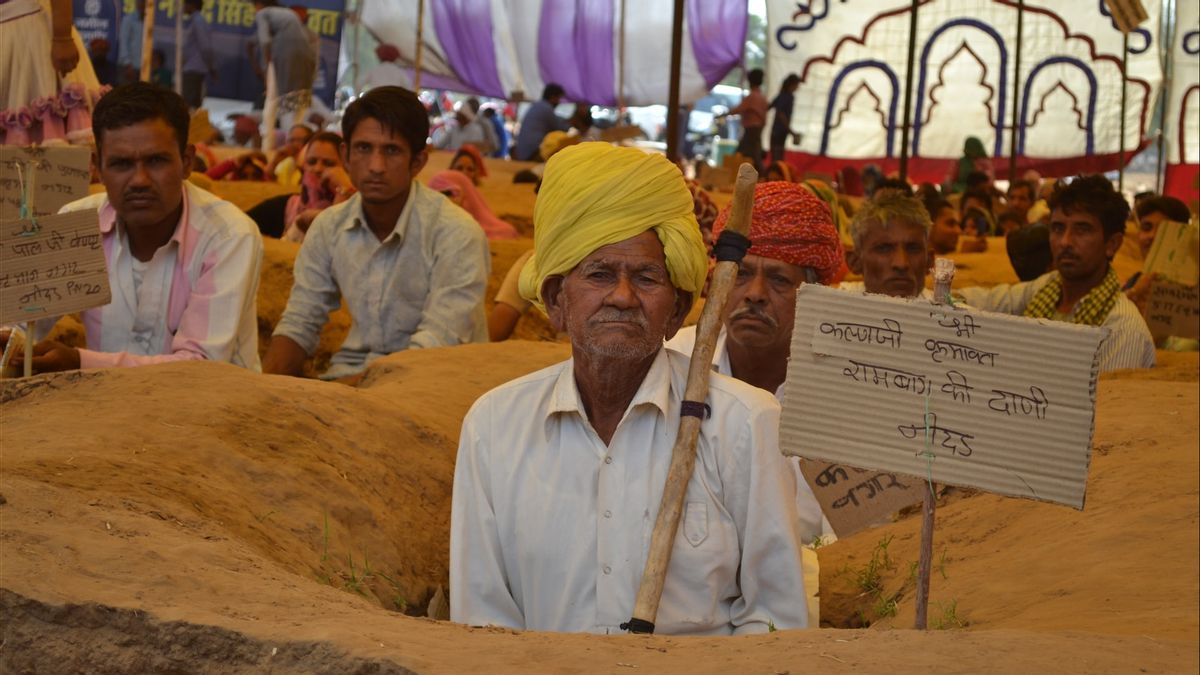JAKARTA - Action against agricultural reform in India has killed 30 people. Even so, the spirit of rejection never goes away. Tens of thousands of Indian farmers have vowed to continue the sit-in round the clock in the cold, even if they threaten their lives.
According to Reuters on Tuesday, December 22, farmers from the states of Punjab, Haryana and Uttar Pradest have been camping for weeks. They they took action to demand the repeal of agricultural reform. As a result, even in the middle of cold weather--temperature reaches 2-3 degrees Celsius-they also did not back down.
The action group contained a large number of parents. The parents have vowed to stay in position even though death from the cold weather threatens them. The effort was made so that the Prime Minister (PM), Nerendra Modi, cared more about the fate of farmers and thus revoked agricultural reform.
"It is very difficult to camp in this weather, but we are not afraid," said Balbir Singh, a childbearing age expert from Patiala District in Punjab. "We will not return until our demands are met. Even if we have to die here, we will. "
Since late November, protests against agricultural reform have killed 30 people. Most of them died because of the cold weather. Meanwhile, ten of the victims died in accidents near the protest site.
"We don't want more people to die in these protests, and I hope Modi and his government immediately revoke the law," said one of the farmers, Paagh Singh. "This is democracy, and he (Modi) must listen to us."
As cold temperatures hit one of the main protest sites it turns into a sea of tents and tractor trolleys lined with tarpaulin. However, some demonstrators had to spend the night sleeping in the open air as a form of protest.
"I don't care how cold it is," said the farmer, Surminder Singh. "I'm not afraid of the cold or Modi. Our struggle will continue until the law is repealed."
Previously, tens of thousands of farmers in India took to the streets to protest against the three laws they deemed harmful since late November. The points of the law that are feared are that the government will stop buying wheat and rice from Indians at guaranteed prices.
As a result, farmers become dependent on the mercy of private entrepreneurs who often offer unreasonable prices.
The English, Chinese, Japanese, Arabic, and French versions are automatically generated by the AI. So there may still be inaccuracies in translating, please always see Indonesian as our main language. (system supported by DigitalSiber.id)













